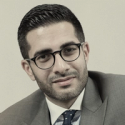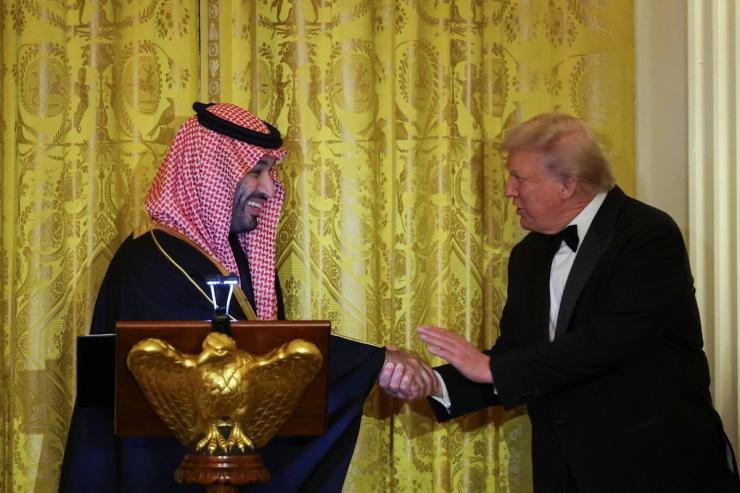Faisal’s view
There are many ways to interpret Saudi Arabian Crown Prince Mohammed bin Salman’s visit last week to Washington, but I found my colleagues at Semafor’s description of the agreements as a “two-way street” apt. The framing matters. As the crown prince made clear at the White House, the $1 trillion in deals and investments are not handouts to the US, nor are they favors to the Trump administration. Rather, they are strategic transactions: investments in return for goods, services, and partnerships that are essential to achieving the goals of Vision 2030.
To some, the trillion-dollar figure may seem staggering, but it must be viewed in the context of a G20 economy transforming itself. Spread across defense, energy, and technology — as well as nuclear power and rare-earth minerals — they touch on core sectors of the global economy and are critical to securing the kingdom’s future.
Take defense. If the F-35 and advanced tank packages proceed on Saudi terms, Riyadh will significantly enhance its deterrence capabilities. Should the deal stall, the fault would lie with Washington’s bureaucracy, not Saudi Arabia’s commitment.
On nuclear cooperation, the US remains the partner of choice. This should provide comfort that Saudi Arabia’s peaceful nuclear ambitions will unfold under US oversight. For Trump, that deal proceeding would be both a geopolitical and economic victory, ensuring that the kingdom doesn’t turn to rival powers for such critical partnerships.
Symbolism also played a role. Although the crown prince is Saudi Arabia’s prime minister and not head of state, he was received with full honors. This was no accident. It was a signal that Washington sees Prince Mohammed not only as the future king but as a central figure in shaping the region’s future. Trump’s willingness to heed Saudi advice — whether previously on lifting sanctions on Syria or now on engaging in Sudan — further underscores the weight Riyadh carries.
There was also a subtle shift on Israel. Trump’s phrasing, referring to both Saudi Arabia and Israel as “great allies,” was telling. It marked a departure from the conditionality that characterized previous administrations. Since Israel’s bombing of Doha, the US has become more attuned to, and vocal about, the damage inflicted by the current Israeli government’s policies. Elevating Saudi Arabia’s position was not intended, in my opinion, as a punishment to Israel, but an acknowledgment of the growing importance of the kingdom, and the crown prince’s influence in China, Russia, the wider Muslim world, as well as in energy markets.
On this issue, critics have argued that the US was shortchanged, that the Saudis left Washington with everything they wanted. But how can anyone claim that a country securing a trillion-dollar pledge has been outmaneuvered? Some of this skepticism may be rooted in the crown prince’s reiteration that Saudi Arabia is willing to join the Abraham Accords if there’s a credible path to Palestinian statehood. But this position hasn’t changed, and has indeed become a global movement after two years of war in Gaza.
It’s up to Israel now to commit to a US-backed plan to end the Palestinian conflict, and Riyadh will likely proceed toward normalization and regional peace. Until then, the deepening of ties between Saudi Arabia and the US will provide plenty of milestones, in both countries, to celebrate.
Faisal J. Abbas is an award-winning journalist and Editor-in-Chief of Arab News.
Notable
- The security pact between the US and Saudi Arabia isn’t aimed at any single threat — it is about deterrence, writes Abdulrahman Al-Rashed in Asharq Al-Awsat.
- The US and Saudi Arabia struck agreements on defense, semiconductors, nuclear power, and more during the crown prince’s November visit to the White House. Experts at the Atlantic Council unpack the deals and predict what to expect next.


